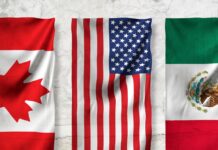But I suspect a different line of thinking inspired the Thomas comment. A Supreme Court justice’s public reservations about Section 230 do not come in a vacuum. For months now, politicians have been attacking 230. While both sides of the aisle have complaints (including from former Vice President Biden), the most virulent ones come from the right. So whether he intended it or not, Thomas’ words are a dog whistle to those who want to hobble social media’s ability to filter out lies that poison the culture, endanger our health, and generally make us hate each other.
Indeed, it didn’t take long for the justice’s comments to energize conservatives who despise Section 230. Only hours after the Thomas memo was posted, it found its way into the Amy Coney Barrett hearings. Senator Josh Hawley, who wants to strip Section 230 protections from platforms if they moderate misinformation in political speech, cited Thomas’ memo and asked Barrett her views about it. (She gave the same non-answer she had been repeating for days—it’s a hypothetical!) Clearly, Hawley sees Thomas’ words as supporting his views. “It’s quite significant!” he said of the comment.
Then the president himself weighed in. He was unhappy that Twitter and Facebook were correctly withholding distribution of what was possibly a false accusation of Joe Biden’s son. Trump hates it that companies have the right to refuse distribution of destructive propaganda weeks before an election. He tweeted his remedy in upper case, with three bangers: REPEAL SECTION 230!!!
Finally, FCC chair Ajit Pai, again citing the Thomas memo, announced his own intention to reinterpret Section 230. Why him? Well, his general counsel told him it was OK if he took it upon himself to bypass Congress and the courts so that Section 230 will mean what Pai says it means. Pai gave us a hint of his thinking: “Social media companies have a First Amendment right to free speech,” he wrote. “But they do not have a First Amendment right to a special immunity denied to other media outlets, such as newspapers and broadcasters.”
Dude! Platforms might not have a First Amendment right to that “special immunity.” But Congress passed a law that specifically gave them that immunity, because platforms are not like newspapers or broadcasters. If you don’t understand that, I shudder to think what your unilateral “rulemaking” will be.
Hawley, Pai, and Trump are not grappling with Thomas’ relatively nuanced arguments. But they are using his reservations to launch a broader attack on 230. They’re challenging the freedom of companies to interpret toxicity as they best see fit—because they want to use the platforms to spread that toxicity.
Thomas’s subtly incendiary 10-page comment increases the chances that Section 230, and the right to speak freely on the internet, will soon be curtailed or canceled—by legislators, the FCC, or presidential edict. If this happens, the Supreme Court will almost certainly end up determining the outcome. Which is exactly what Clarence Thomas has been asking for. Feel better?
Time Travel
The Nobel Prize for economic sciences this year went to Paul MIlgrom and Robert Wilson. Milgrom is recognized as one of the world’s great experts in auction theory, and I interviewed him for my book In the Plex (finally out in paper next February!) about Google’s clever AdWords approach to bidding, which was crafted by Google engineer Eric Veach along with his boss Salar Kamangar. I’d asked Milgrom to compare the AdWords system to the competitor, Overture:








